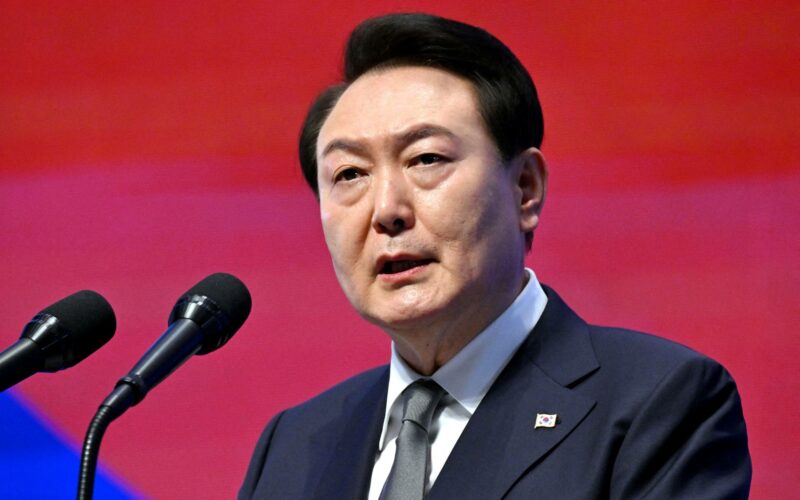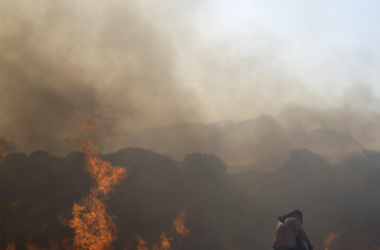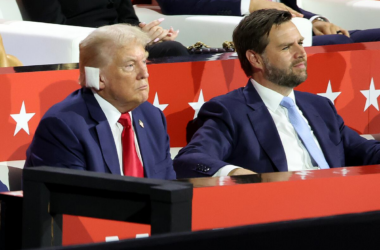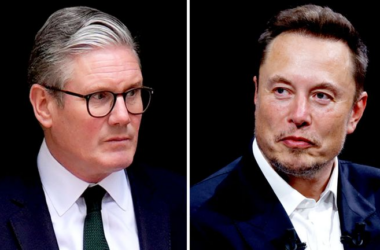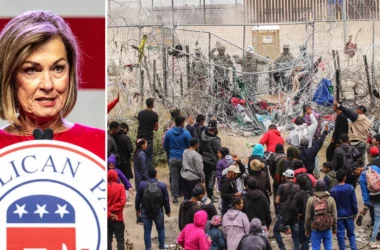President Yoon Suk Yeol of South Korea is facing serious accusations of intervening in the investigation of a marine’s accidental death during a peacetime search and rescue operation. This incident has evolved into a significant political crisis that threatens his presidency and has implications for the country’s stability.
Last July, following severe monsoon rains, the South Korean marines were deployed to a rural area to search for missing residents amidst waist-high floodwaters. Lacking proper safety equipment, including life jackets, buoys, and safety tubes, the mission turned tragic when five marines were swept away by the floodwaters. Lance Cpl. Chae Su-geun, one of the marines, disappeared downstream and was later found dead.
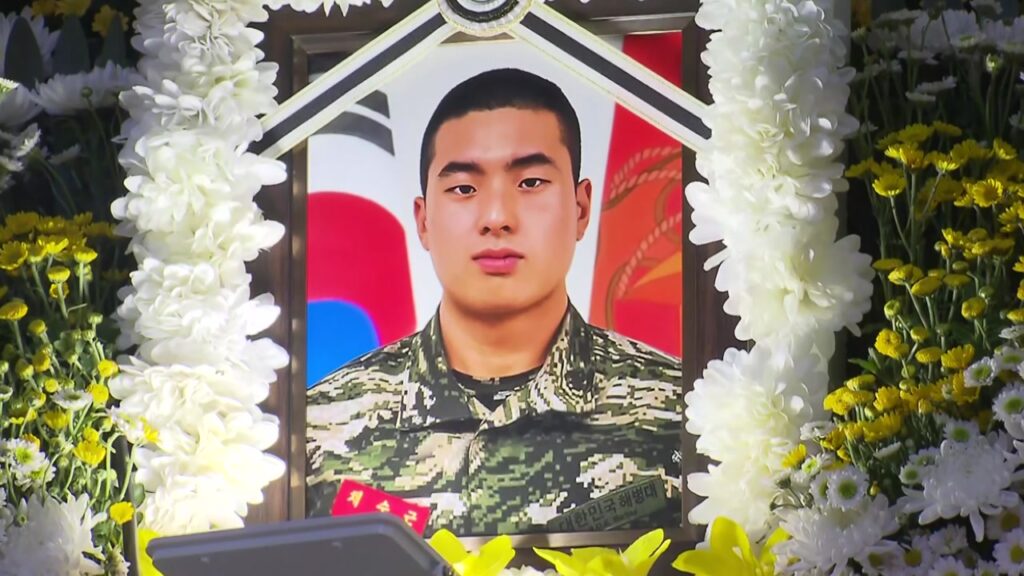
Nearly a year after the incident, the handling of Lance Corporal Chae’s death has led to allegations of political interference, with significant repercussions for President Yoon. The marine’s death, coupled with the accusations of a cover-up, has sparked discussions about impeachment and added to the existing political instability following Yoon’s party’s defeat in recent parliamentary elections.
The military’s initial investigation concluded that the marines had been inadequately equipped, contributing to the tragedy. Eight supervisors, including Maj. Gen. Im Seong-geun, were deemed responsible for the negligence. However, the Defense Ministry later altered the investigation’s findings, reducing the number of individuals held accountable and retracting crucial details. Col. Park Jung-hun, the lead investigator, alleged that these changes were made under pressure from President Yoon’s office, a claim that has yet to be directly addressed by the president.
Public sentiment in South Korea has largely been in favor of appointing a special prosecutor to investigate these allegations, reflecting growing distrust towards President Yoon and his administration. The opposition, capitalizing on this distrust, has threatened to initiate impeachment proceedings if their demands for a special prosecutor continue to be resisted.
In response to the crisis, President Yoon vetoed a bill calling for a special prosecutor, stating that existing government agencies should be allowed to complete their investigations first. This decision has further fueled the opposition’s calls for impeachment, emphasizing the need for transparency and accountability in addressing the allegations.
As the situation unfolds, the newly elected Parliament, dominated by the opposition, is poised to push for further legislative actions. Whether they can garner enough support to override the presidential veto or initiate impeachment remains uncertain, but the political landscape in South Korea remains highly volatile.
The death of Lance Corporal Chae has not only highlighted issues of military negligence but also the potential for political abuse of power. The ongoing investigations and the political maneuvers in Parliament will be crucial in determining the future of President Yoon’s administration and the stability of South Korea’s governance.




